Fable: The Journey Preview: Molyneux's Final Folly
The Lionhead king is dead, long live the king.
It all started with an acorn. Project Ego, the game that would eventually grow into Fable and then further flourish into one of the enduring series of the last decade, was built upon a promise of choice, of being able to craft your own journey in the fantasy land of Albion across your hero's entire lifespan. That acorn was an embodiment of that promise: something you'd be able to plant and then return to, after digital decades had passed, to see an oak in bloom.
That acorn was also an embodiment of the whimsy of Peter Molyneux, founder of Lionhead Studios and, throughout the entirety of the Fable series to date, its figurehead. When that acorn failed to materialize in the very first Fable, to a vocal bunch it came to symbolize what they felt about Molyneux - that he was a snake oil salesman, a purveyor of empty promises and hollow rhetoric.
If you're ever lucky enough to witness the Molyneux show in person, it's hard not to come away thinking he's one of the industry's finest showmen, the kind of character you'd expect to find down one of Albion's alleyways, enchanting a small gathered crowd with his sleight of hand and abundance of charisma.
In San Francisco earlier this month, it's a magic that he's weaving for a final time in his capacity as creative head of Microsoft Studios Europe. A handful of days after this last performance, he'll announce that he's leaving to pursue a smaller, more independent life at Guildford upstart 22 Cans.
It's been a long day. The presentation comes after a steady succession of others, yet that hasn't dimmed the spectacle of the show. Through the jetlag and the fatigue, Molyneux remains in absolute wonder at what his team at Lionhead has created, displaying a wide-eyed amazement that proves incredibly infectious.
We're all here to see Fable: The Journey, an offshoot of the now long-running series that's built around Kinect, a device that's proved extremely divisive amongst the Xbox 360's core audience. It's a fact that Molyneux himself is quick to acknowledge.
"I don't know what your opinion is on Kinect for core gamers," he tells a small audience assembled off one of the wood-panelled corridors in what was once the city's Federal Reserve Bank. "From the blogs and the posts that I've seen, there's a lot of scepticism out there. People think that they're going to be leaping around the room or they're going to have to shout at the top of their voice and feel embarrassed. We don't want that - we want you to feel relaxed."
There's an explicit showman's flourish as Molyneux asks for a volunteer from the audience to come forward and experience The Journey for themselves. One attendee is more than willing, stepping forward to position himself in a seat that's been set out on a small black square of carpet in the centre of the room.
Fable: The Journey is played out across a 300-mile trip through Albion to The Spire. Its protagonist Gabriel, in the series' well-established tradition, makes his own personal journey to become a hero. It's played from a first-person perspective with much of its action taking place on horseback.
Lionhead has tinkered with creating virtual life before, whether that's with Fable 2's canine companion or, more notoriously, with Milo, an early showcase for Kinect and a tech demo that laid the foundations for The Journey. This game's horse is a continuation of that long line, and also a proud successor to the likes of Ocarina of Time's Epona and Shadow of the Colossus' Agro.
"We have put untold hours of love skill and craft into the simulation of that horse," says Molyneux, before delivering a line worthy of his online parody Peter Molydeux. "This horse feels pain, it feels anguish; it will recognize when you feel nervous and it will respond."
When carried away in the flow of one of Molyneux's presentations, you're inclined to believe him. The horse, like much of Fable: The Journey, looks incredible, a muscular presence and one that, through Kinect, you feel physically connected to. When riding it through the narrow paths of The Journey's Albion, a tug of both hands will speed it up, while pulling left and right on a pair of imaginary reins will change direction.
Our volunteer gets carried away, pulling a little too enthusiastically to the audible discomfort of the virtual horse. "One of the biggest issues that people have with Kinect is how energetic you have to be," Molyneux admonishes in a voice so slow and soothing that it's close to hypnotic. "I want you to relax."
So we all sit back and settle into a trance. Albion's always been a fascinating place to explore, and in The Journey it proves itself as a fitting backdrop for a slowly unfurling, fantastical road movie. Miles of rolling green stretch around, The Spire looming large in the background while in the middle distance the tall brick stacks of Bowerstone spit black smoke out into the blue skies.
A threat soon emerges in the shape of a gang of Hobbes, the stout, comical grunts of the Fable universe attacking your horse from the side of the road. The horse is struck, introducing another staple of the Fable universe: choice. Do you carry on riding regardless, potentially upsetting your horse, or do you pull over to the side of the road and tend to its wounds?
With the doting Molyneux overlooking, there's only one real choice that can be taken, the horse being directed to a small hut in a forking road ("I get very distressed when people abuse the horse," Peter says. "A lot of people have in this demo, and I just want to kick them.")
This kick-starts a small mini-game where you can pet your horse, soothing its wounds with magic and pulling out any arrows that have become lodged in its sides. (If you're feeling cruel, you can push the arrow further in, though doing so under the watchful eye of Molyneux will surely incur his wrath.)
"When you heal something in Fable: The Journey, something living has to pay the price for what you've healed," Molyneux adds later, again seguing into the wistful persona that he plays so well. "So when you heal those scars, something else living is hurt. That's a very important point - there are some people who you take with you and you can use this power to heal them, but literally puppy dogs will fall over and die at the side of the road. And that's a very interesting moral choice."
It's a vintage Molyneux line, the kind of promise that his public image has been built around. Looking back, there's a sense that he's playing to the crowd and to the public perception of himself, knowing what the assembled audience wants and more than happy to deliver.
(Later, sitting in on a series of short one-on-one interviews, I get to see him at work again as he doles out a series of quotable soundbites to each interviewer like little fortune cookies. "I probably shouldn't tell you this," he teases, before delivering a carefully tailored outburst that will hit the following week's headlines. "I love the fact that Kinect's not precise," is one such nugget, while I get handed the equally juicy "Is Call of Duty all this industry really is?")
The demo has moved on to an on-foot section, again told in a first-person view, in which you throw a series of magic spells into the screen and towards an onslaught of enemies plucked from the world of Fable. Your right hand fires off projectiles, their velocity being affected by the force with which you throw them, while your left hand can manipulate objects, allowing you to pick up enemies and hurl them around.
It's one of the better uses of Kinect to date, the fast-paced action being served by what seems to be an improved understanding of the technology than that seen in the first generation of titles. There is, somewhat predictably, another whimsical twist.
"Why can't we use your voice as well?" he asks. "A lot of people use your voice in that they get you to say sentences, or they get you to speak to people. I worry about that - even with things like Siri, I think it's a bit of a problem.
"We're doing something different - when I play games, sometimes I talk to the screen. Sometimes I complain or I moan, or I come up against someone that's particularly hard and I say 'would you just die'. And I want to use that in our magic system.
"With your right hand, if you use a lot of emotion in your voice it'll double the power of the spell in your right hand, and it will continue to double the emotion as you keep on talking. If you keep on using all of your might and force it'll get thermonuclear. If you speak with sarcasm, then the magic in your left hand will become longer and become more fluid. If you shout, they'll become spiky and less fluid."
A fanciful promise - and one that's glimpsed only fleetingly in the demo. But it's still proof that Fable, a series that was founded on ambition, will continue to be informed by it. Molyneux's departure likely won't impact the output of a talented studio that's often been overshadowed by its former head, but the promises that the Fable games have been built on will likely never be delivered with such conviction, or such charm.
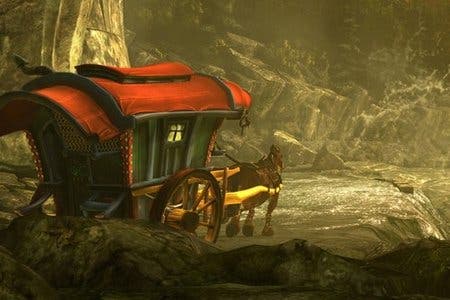


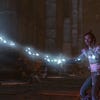
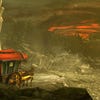

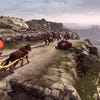
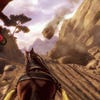



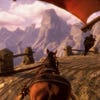



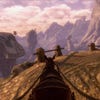
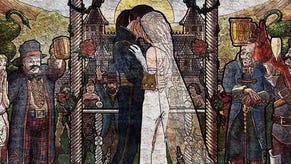
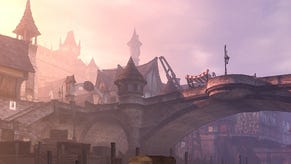
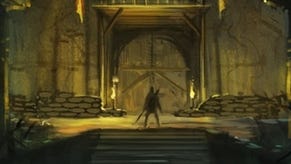

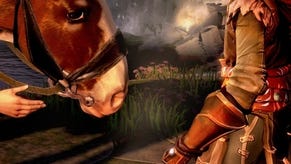
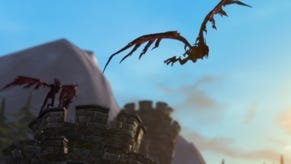
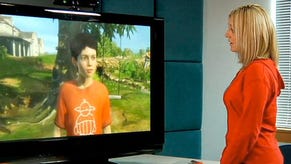
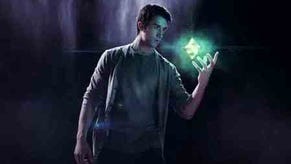




.png?width=291&height=164&fit=crop&quality=80&format=jpg&auto=webp)


